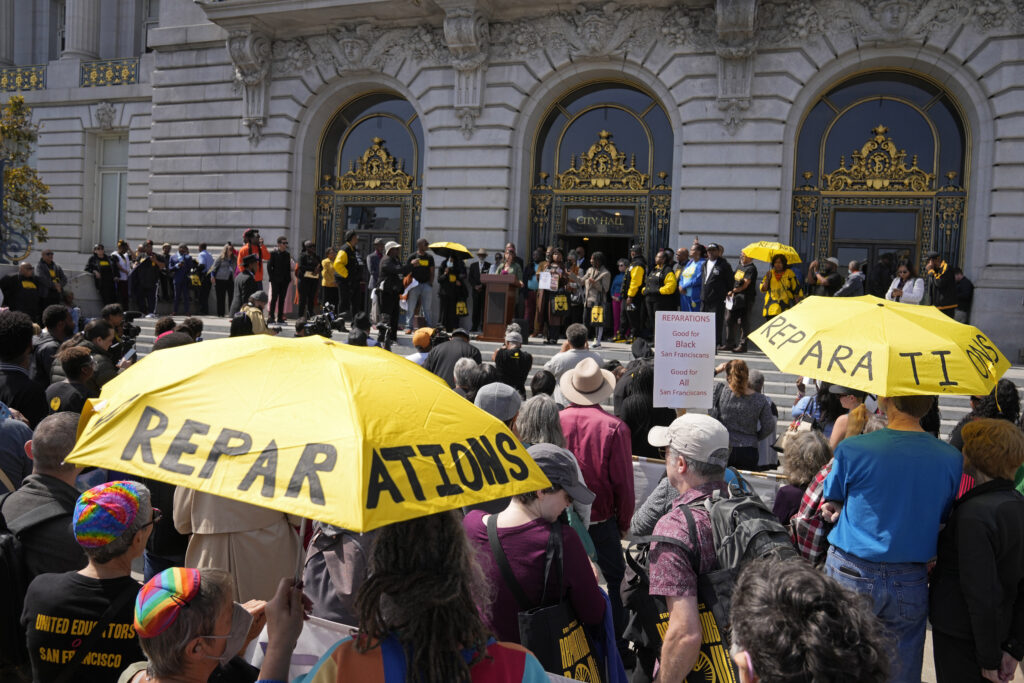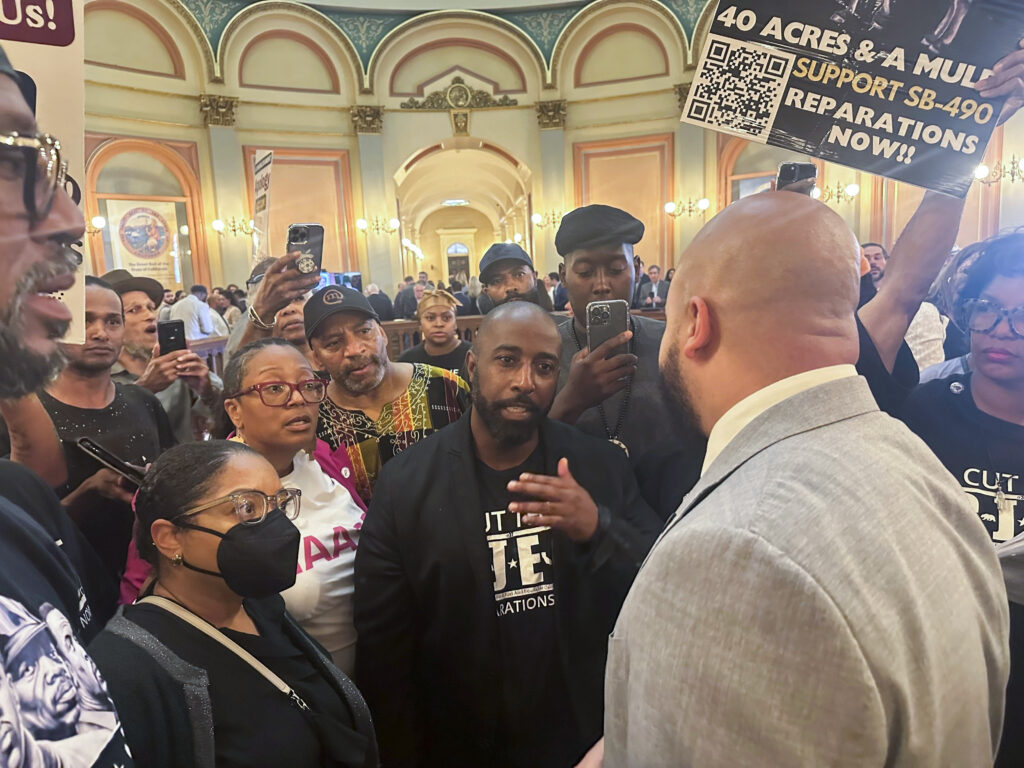Governor Newsom Apologizes for Slavery, as ‘Starting Point’ for Further Reparations — but No Payments to ‘Victims’ Yet
The apology invites the question: Will the Golden State try to make amends ‘in a way that will disadvantage other people because they aren’t the right race, or the targeted race?,’ one observer says in an interview with the Sun.

California, which entered the Union as a free state in 1850, is formally apologizing for slavery and its lingering harms — in a move that observers say could be setting up the state to take further reparations actions in the future.
“The State of California accepts responsibility for the role we played in promoting, facilitating, and permitting the institution of slavery, as well as its enduring legacy of persistent racial disparities,” Governor Newsom said as he signed the apology, which notes that despite being a free state, more than 2,000 slaves were brought in between 1850 and 1860. The apology also includes an expression of contrition for a series of other discriminatory harms against the state’s Black residents.
What the apology does not include are cash payments to Black Californians, a longtime goal of the reparations movement.
Mr. Newsom signed the apology alongside several other measures that reparations advocates had pushed for, including requiring grocery stores and pharmacies to provide notice of upcoming closures to “address food deserts that disproportionately affect communities of color” and clarifying that race discrimination includes discrimination based on hair texture.
Although those wins are a far cry from what reparations advocates have been demanding — Mr. Newsom vetoed a bill that sought to return land that was taken as a result of allegedly racially motivated eminent domain, and several other critical bills were shot down by the legislature — the apology includes a statement that the state is committed to “restore and repair affected peoples with actions beyond this apology.”

“I think it’ll give reparations advocates a starting point,” a Pacific Legal Foundation attorney and reparations task force director, Andrew Quinio, tells the Sun. While it’s “good when the government acknowledges when it has done wrong,” he says, “the question is always then, well, how does it make up for that? And will it make up for that in a way that will disadvantage other people because they aren’t the right race, or the targeted race?”
California — which deployed more Union soldiers per-capita than any other state and provided ample funding to the North through its rich gold mines — has been leading reparations efforts nationally. Despite tough talk from reparations backers, no cash payments have yet been advanced in the state — even on the city level.
At far-left San Francisco, a committee of the city’s Board of Supervisors recommended earlier this year that each black adult in the city receive a $5 million lump sum payment and a $100,000 a year lifetime income, but payments have yet to be made.
“I think in California specifically, it’s probably not politically popular to have cash payments,” Mr. Quinio says, noting that last fiscal year the state faced a $45 billion deficit. Since the state’s constitution requires balancing the budget, reparations payments would mean either cutting spending or raising taxes, he says. “If we’re going to talk about direct cash payments to individuals, that’s going to balloon the deficit even further. So that’s probably why, on a practical level, fiscal level, political level, that’s not being pursued.”
Asked about how California — and jurisdictions around the country pursuing reparations in the future — could go about determining eligibility, he says targeting specific instances of discrimination would be more constitutional than tying a large program to race, ethnicity, or ancestry.

As for what’s next for reparations in the state, Mr. Quinio says not to expect the efforts to disappear anytime soon.
“This is not something that will go away this legislative session. I think the reparations advocates have promised to renew these efforts and try to bring these bills back up again,” he says. “So stay tuned.”

